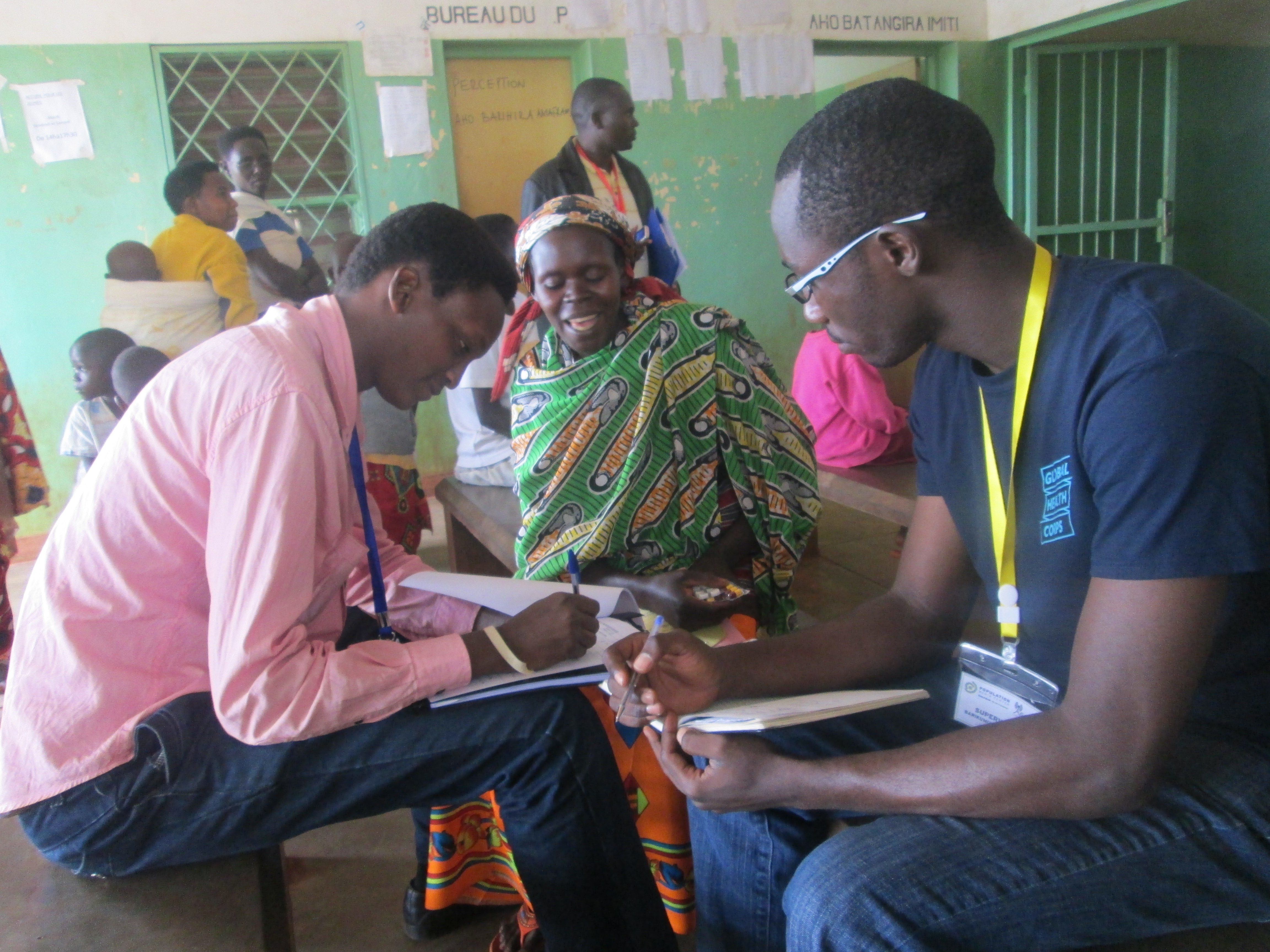During my second quarter as a GHC Fellow being placed in Burundi with Population Media Center (PMC), -a US nonprofit organization which is mainly oriented towards addressing the global challenge of overpopulation, I was more than passionate about the work that I was doing with my co-fellow Alex as a Project Coordinator. Not only I was interested by the organization’s objective itself to implement a health communication radio program, a radio drama based on the creative Sabido Methodology, but was also as a Burundian concerned about the Burundi Statistics on Population which revealed through the DHS the average of 6.1 children per woman, which was massive considering the size of Burundi, a developing country with difficulty to mainstream the agenda for the MDGs towards sustainable development.
As part of my work, I had to deal with various partners, office work and also field activities as I was specifically in charge of the communication of our program and promotion of our radio drama, Agashi (Agashi means “Hey! Look Again!”). My favorite additional activity was to lead monthly telephone surveys of our audience to qualitatively record our listeners’ feed-back as well as promoting the program to the non-listeners. This was the most challenging and time-consuming responsibility. Amazingly, I grew excited to do this activity and I enjoyed each moment. Afterwards, I would go back home very tired with my ear-phone listening to my audience’s stories.
In fact, these telephone surveys were really connecting me with the real challenges of the Burundian community at large that was targeted by our program through our radio drama. Through their feed-back, I was able to understand that the people were challenged to model their behaviors on the theme of Family Planning. This also was the same on other themes that we were addressing in the radio drama like nutrition, gender equity, property and conflicts, vaccination, youth challenges, maternal and child health, sexual and reproductive health for youth etc. with the Ministry of Health (MoH), United Nations Children Fund (UNICEF), World Food Program (WFP), Segal Family Foundation (SFF), Population Services International (PSI), United Nations Population Fund (UNFPA) and other local partners. This was really an-exciting-and-interesting occasion to get to hear some personal stories and testimonies from people, randomly selected and anonymous, that would easily take me through understanding their lives and everyday challenges. These telephone surveys revealed to me how, as a leader, it is worth taking time and listening to people, to understand their problems and adjust non-useful approaches that have gaps, and reveal how they are disconnected from the local context of beneficiaries.
One thing that was surprising to me and many of my colleagues and partners, even the MoH, was how our radio soap was revealed to be quickly one of the health programs most listed to. Was this due to the entertaining part of the drama? Was it due to the intensive promotion that we seriously worked on implementing from the first months? Or was it because the themes and stories were exciting and appreciated as people would listen to the characters of the radio drama? Or finally, was this program tackling real issues that the people would reflect on and find in their own lives? I was pretty curious about this. That is why I grew a passion, from then on, for field activities: leading promotional caravans and being part of the monitoring visits in the provinces. I now easily understood how poor our communities are, how our policies and programs can hardly address their issues especially when they are thought broadly and not adapted to local needs. The level of education of the communities is low enough and the oral culture is the most educational heritage since many years. People are not really taking advantage of the news information technologies as we see in other developed countries. I understood that this situation was among one of the reasons our program was sold well to the people, as it was responding to their communication model (narrative) and also with a tool that many would access easily: the radio.
And my fellowship period was getting much more exciting with these realities. I discovered how big the change I want to make in this world, and for this “small” Burundian community, was. I was reflecting now on the Still Harbor Session, on resilience, on how to ride an elephant, on how to change things when change is hard, etc. I now understood what is meant to be a GHC fellow and how this was going to affect and inspire all my entire professional life. This experience was unique, exposing me to real social and health issues, unbelievable stories that ever changed my perspectives for social justice. I now understand clearly that there is a lot to do for Burundi.

